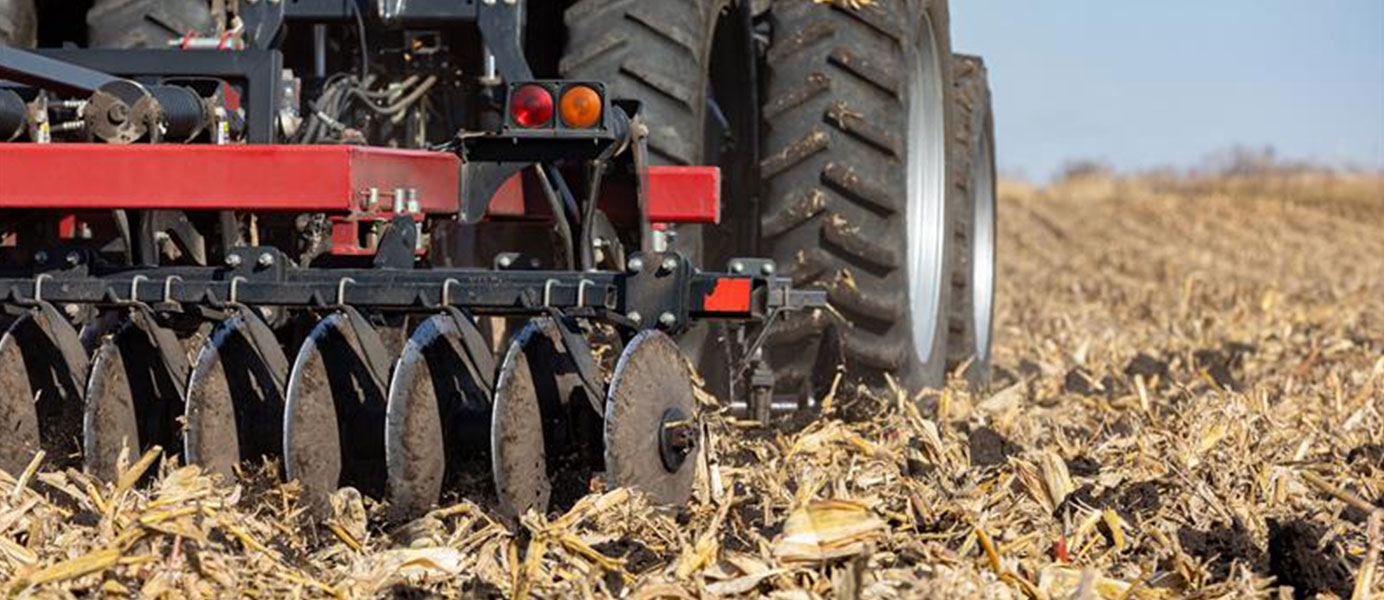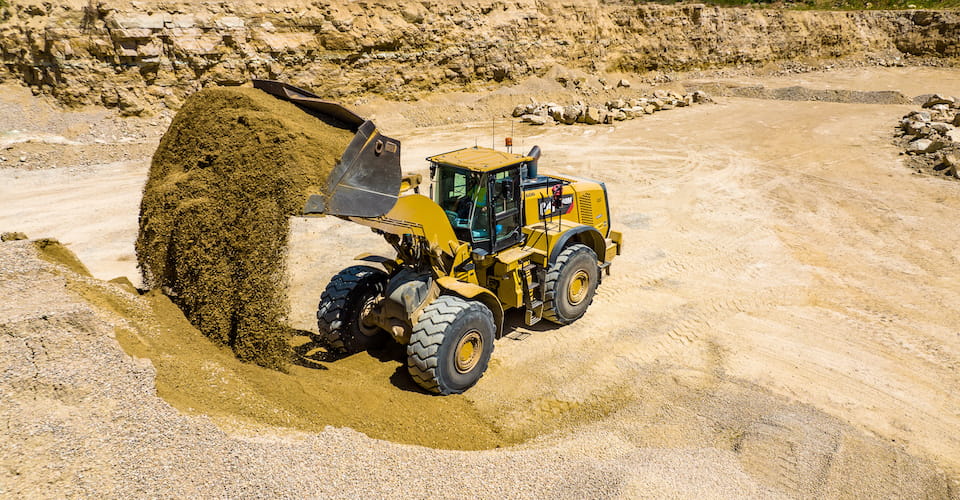
Loss of fuel flow, hard starts, and sluggish hydraulics from thickened lubricants and gelled fuel can all contribute to unexpected downtime, costly repairs, and lost productivity. The good news? A few proactive maintenance steps can prepare your equipment to handle whatever winter throws its way.
6 winter best practices to keep equipment running smoothly
Here are six essential practices to help keep your equipment running strong through the cold months ahead.
1. Winterize your diesel fuel
Typical #2 diesel fuel is susceptible to gelling in freezing winter temperatures, which can lead to clogged filters and stalled engines. Before mother nature hits, consider blending down your fuel tank with a #1 diesel fuel and utilizing additives like cold flow improvers.
According to Austin Robida, product manager at CHS, “Blending down your fuel tank too late in the season is one of the main culprits for winter fuel issues.” To optimize your cold weather performance, switch to Cenex® winterized premium diesel fuels, specifically formulated to deliver reliable and efficient performance even in the harshest winter conditions.
2. Storage maintenance
Fuel and lubricant quality alone aren’t enough—the way you maintain your fuel and lubricant storage tanks plays a crucial role in protecting your operation during winter. Proper tank maintenance helps ensure your fuel and lubricant supply stays clean and free of harmful contaminants and remains that way until it reaches your equipment.
Removing water, sediment, and other impurities from the fuel storage tank prevents them from entering your fuel system, where they can lead to corrosion, filter plugging, and ice formation that severely hampers engine performance. The same principle applies to lubricants: store oil and grease indoors in a clean, climate-controlled environment to prevent degradation and contamination.
It's never too late to winterize your diesel fuel. Check out four things to know about winterizing your diesel later in the season.
3. Change fuel filters
Dirty or clogged fuel filters strain your fuel system even under ideal conditions. Add freezing temperatures to the mix, and it becomes a recipe for costly downtime. Yet, replacing fuel filters before winter often gets overlooked. Installing new filters is a simple, inexpensive safeguard that can help keep your operation running smoothly.
4. Understand the health of your supply
Fuel and lubricants are the lifeblood of your equipment. At Cenex, we offer comprehensive fuel and lubricant sampling services as part of our dedication to quality. Our refined fuels sample kits provide critical insights into your diesel fuel, including its cold weather characteristics.
LubeScan® used oil analysis offers a quick and cost-effective assessment of the health of your lubricants and equipment. It’s also an early alert to impending problems. Proactively sampling your fuel and lubricants gives you time to take corrective action so you can head into whatever winter throws your way with peace of mind. Contact your local Cenex distributor to learn more about sampling.
5. Switch to winter-grade oils & synthetics
Cold weather causes lubricants to thicken, making it harder for engines to turn over. According to Connor Canfield, technical product expert at CHS, “Cold mornings are brutal on engines. The wrong oil causes oil starvation at startup. That means metal grinding on metal and wear accelerating before work even begins.”
Switching to winter-grade and synthetic oils with lower cold-cranking viscosity helps oil circulate from the first turn of the key, even during frigid starts. Ensure you are using the correct fluid in your equipment with the right viscosity rating. Oils with a lower “W” (like Cenex® Maxtron® Enviro-EDGE® 5W-40 diesel engine oil) flow more easily in freezing conditions, making cold starts less stressful on your engine. This not only improves reliability but also extends engine life by reducing strain. Synthetics are not only known for their robustness in high temperatures but also flow much easier in cold weather, making them a great option for year-round usage.
6. Check hydraulic & coolant fluids
Hydraulic systems can become sluggish in the cold, slowing response times and putting added stress on pumps. Switching to a multi-viscosity or low-temperature hydraulic fluid, like Cenex® Maxtron® THF+ tractor hydraulic fluid or Cenex® Indol® MV hydraulic fluid, keeps operations smooth and consistent.
At the same time, don’t overlook coolant—verify your antifreeze mixture provides proper freeze protection for your climate and inspect coolant levels and condition to safeguard against engine damage.
The bottom line
Winter doesn’t have to mean downtime. By proactively maintaining your fuel and lubrication systems before winter sets in, you can prevent costly breakdowns, improve cold-weather performance, and keep your equipment running strong as temperatures plunge.
Think of it as an investment in uptime. The better prepared your equipment is, the more reliable it will be when winter is at its harshest.
About Cenex
Cenex is the largest cooperative refiner in the country, bringing over 90 years of expertise in high-quality energy solutions. Cenex offers premium fuels, lubricants and propane products that power both vehicles and homes in America.











